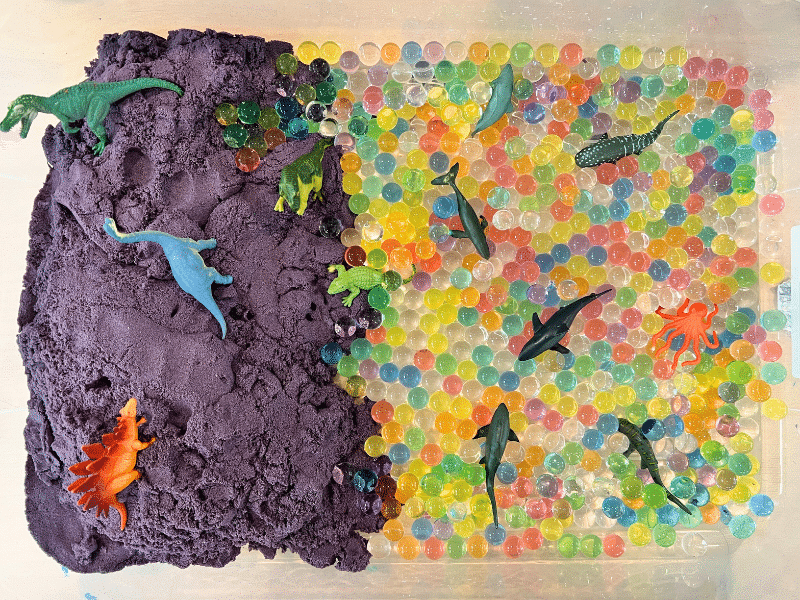Sensory play is great for children’s development and sensory bin materials can be used in learning, play, & art activities. The more senses we regularly use, the better.
Updated July 2025
We’ve always been big fans of sensory play and sensory bins.
Young children, especially, learn about the world with their whole bodies.
Sensory materials and experiences can be wonderfully engaging (and also calming and grounding, depending on how you use them).
Sensory play helps build both physical and mental abilities. It stimulates the five senses: sight, touch, smell, hearing, and taste. It can provide a sense of calm and comfort for a child and can help them learn to regulate their behavior, which can ultimately also improve focus.
Want to learn more? See The Artful Parent’s Guide to Sensory Play for more information on how to manage sensory play.
You provide children with the opportunity to learn, play and encourage creativity with sensory rich materials. Without further ado, here are some of our favorites.
The Best Sensory Bin Materials for Kids
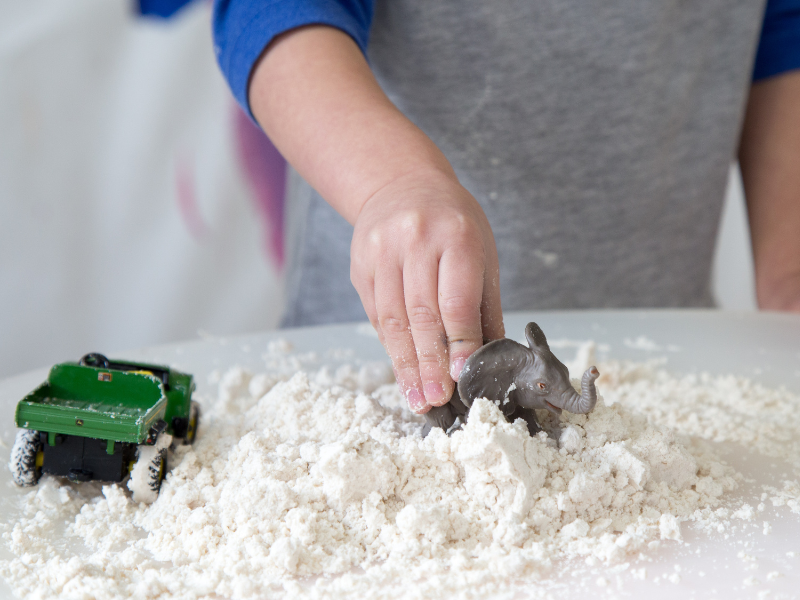
1. Cloud Dough
The texture of cloud dough is so unique – it’s fluffy but will also hold the shape of a mold, like a sand toy. And it’s so easy to make! The recipe: 8 cups flour to 1 cup oil (baby oil or vegetable/canola oil). To color your cloud dough, mix oil based (candy) food coloring with oil first.
Watch our Youtube video on how to make cloud dough!
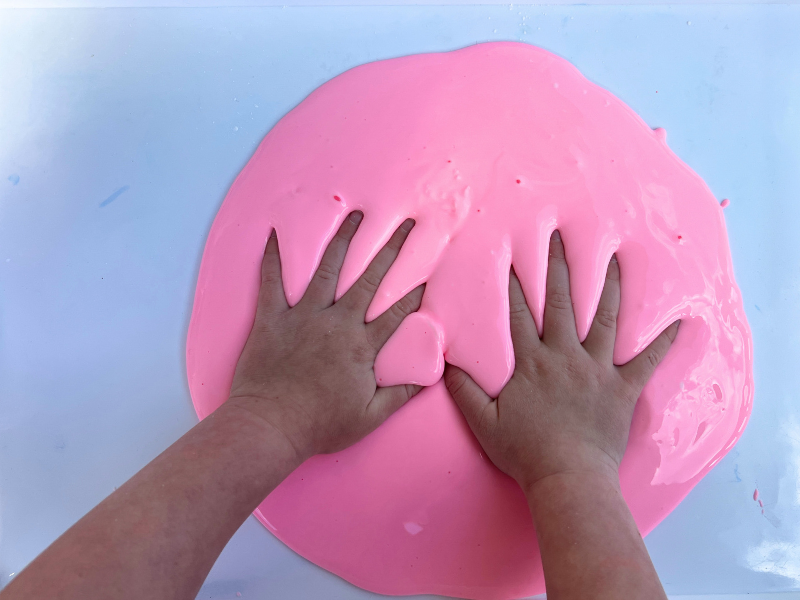
2. Oobleck
Oobleck, or sensory goop, is super easy to make. And there’s a surprising number of fun ways to learn while playing with this non-Newtonian liquid.
Related Stories from The Artful Parent
It looks messy, I know, but it’s simply cornstarch and water, making it easy to make and clean up. The recipe: Mix a few drops of food coloring into 1 cup of water. Then slowly mix in 1 1/2 to 2 cups of cornstarch until you have the right consistency.
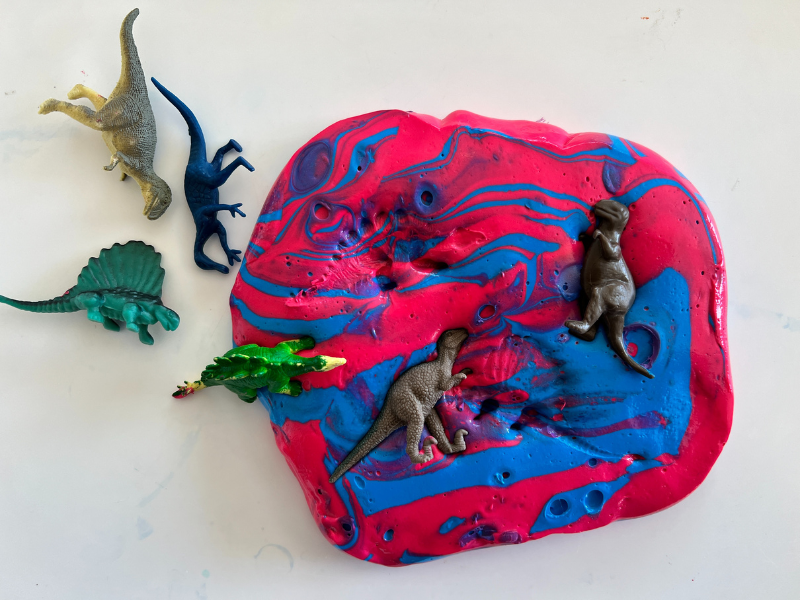
3. Homemade Slime
Slime is also easy to make at home! Plus, it’s a great sensory material to hold, squeeze, stretch, and fiddle with. A super fun sensory material for big kids to mix up at home. And be sure to try out these fun slime creations for kids afterwards.
Here are a few of The Artful Parent’s favorite recipes:
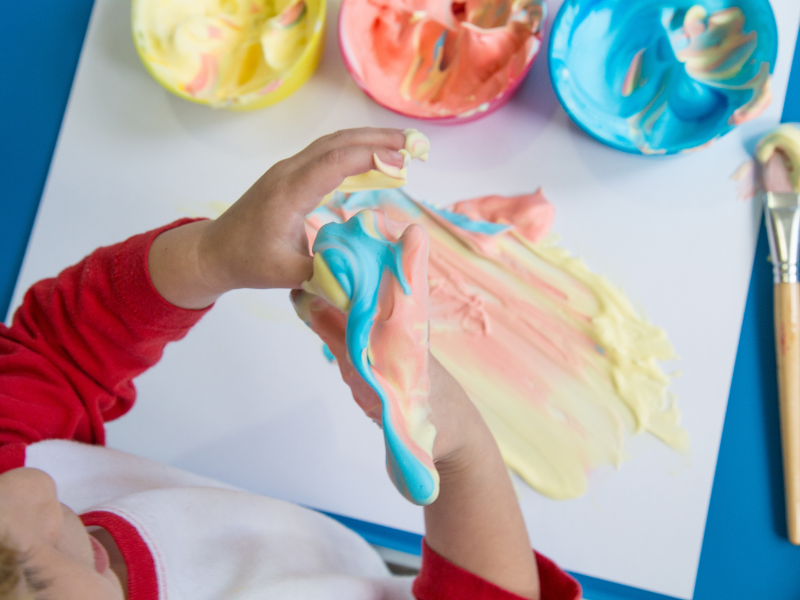
4. Shaving cream / foam painting
Shaving cream is always a favorite sensory and art material for kids. It’s fun to paint toys with, rub all over your body, or paint the window! Either use shaving cream as is or add a few drops of liquid watercolors or food coloring for some colored foam.
Here are lots of idea for using shaving cream for kids’ art, play, and learning, including shaving cream marbling, sensory table ideas, holiday crafts, and parties.
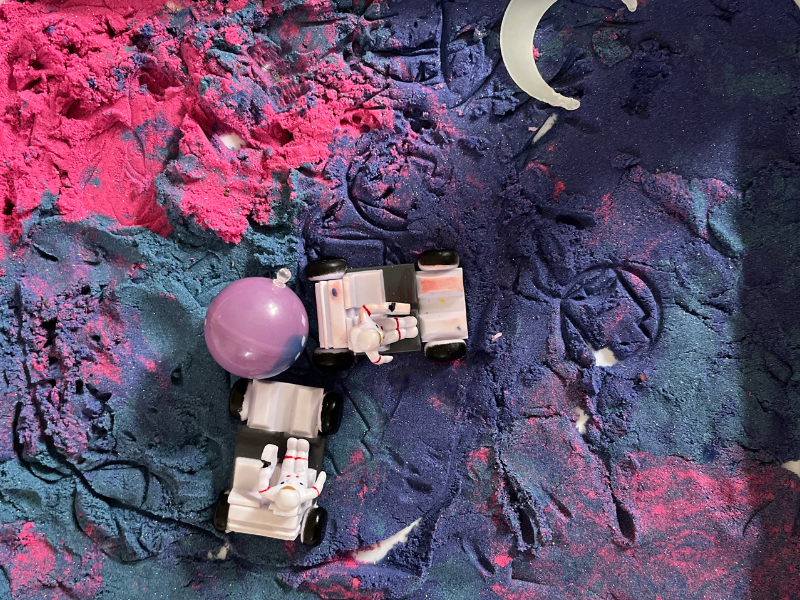

5. Kinetic sand
Kinetic sand is another favorite sensory material for kids to play with. There are lots of brands out there and, chances are, you’ve tried at least one of them.
- Psychology says your loneliness isn’t because people don’t care anymore, it’s because you stopped doing this one crucial thing without realizing it - Global English Editing
- 8 things parents do thinking they’re being helpful that make adult children dread every phone call - Global English Editing
- Psychology says the reason fashionably late has fallen out of favor isn't because culture became more rigid — it's because we've all become more aware that time is the only resource we truly can't get back - Global English Editing
Kinetic sand both flows through the fingers and holds shapes remarkably well. Our kids love to play with this stuff!
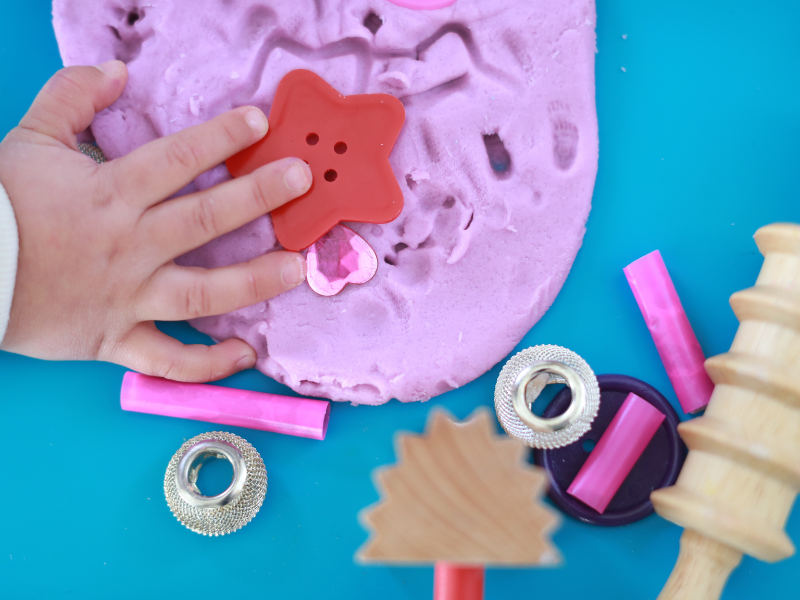
6. Playdough
We might not usually think of playdough as a sensory bin material, but it totally is! Kids can knead and mold the dough, roll it into balls and snakes, poke their fingers into it, and squish it between their hands.
Playdough is a wonderful sensory material and can be made even more so with the addition of essential oils or textures.
- Here are our favorite No Cook Playdough Recipe and the BEST Cook Playdough Recipe
- Plus how to set up a playdough tray for creative play!
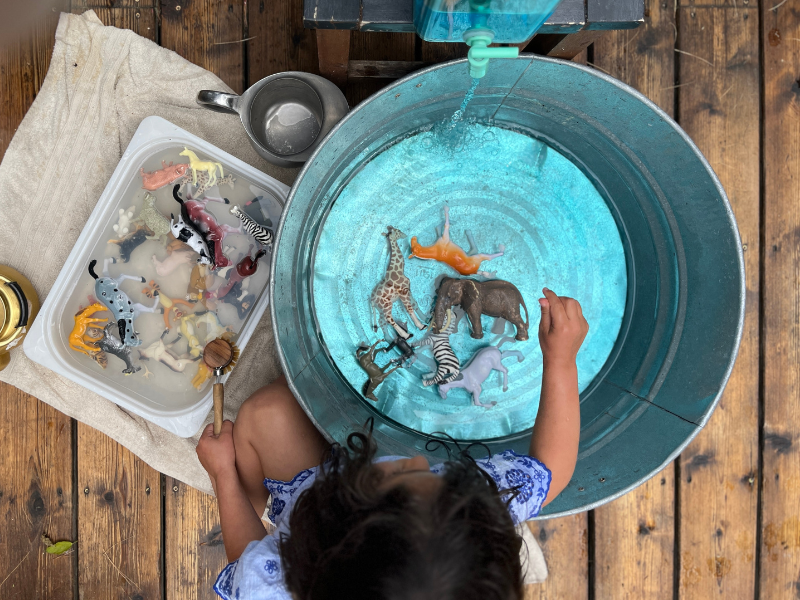
7. Water
Water is another fun sensory experience for children, especially in warm weather. Kids love to run through a sprinkler on a hot day, play with water balloons, splash in the creek or kiddie pool, take extra baths, and water the garden.
You can also use water play tables for toddlers or make your own water wall. Making a water play set up is super easy with flowers, sea creatures, citrus and food coloring.
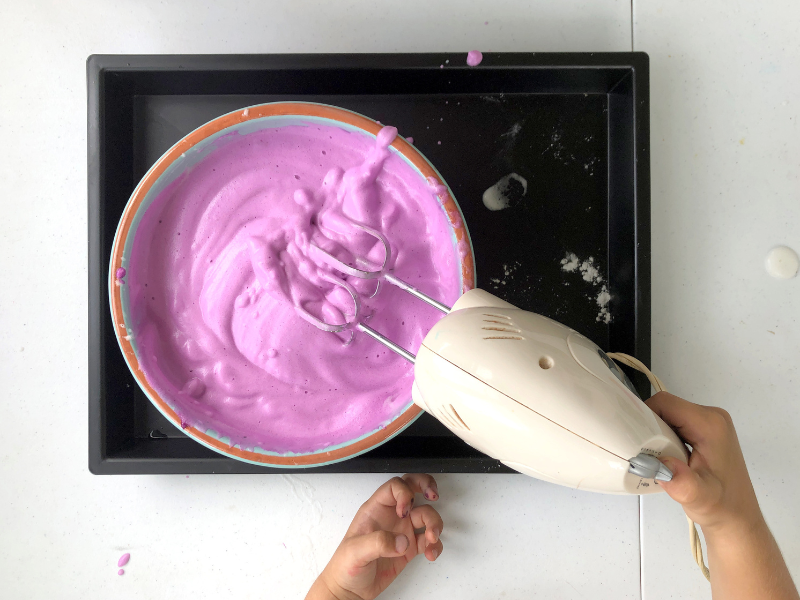
8. Aquafaba
Aquafaba is a newer sensory play material made using the liquid from a can of chickpeas. If you’ve never heard of it, be sure to check out our recipe and instructions on this fun taste safe material for babies on up!
The recipe: with a hand or stand mixer, whip up the liquid from 2 cans of chickpeas, 1/4 teaspoon of cream of tartar and a few drops of food coloring. Whip until soft peaks form.
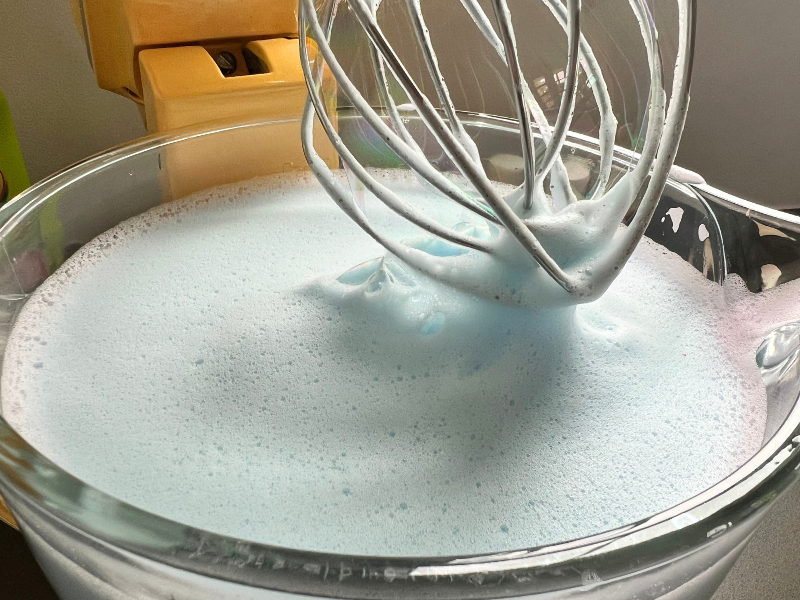
9. Bubble Foam
This sensory activity also has what it takes to become a messy play experience. For this, all you need is a bit of water and a few squirts of tear free bubble bath. Once blended together, the mixture is nice and fluffy.
You can pour the soap and water mixture onto a tray and let the kids play in it. Or add a couple of drops of food coloring to turn the foam into the kids’ favorite colors so they can create some foamy sensory art.
The recipe: Bubble foam is 1/2 cup tear-free bubble bath to 1 cup of water. Whip with a mixer until very fluffy.
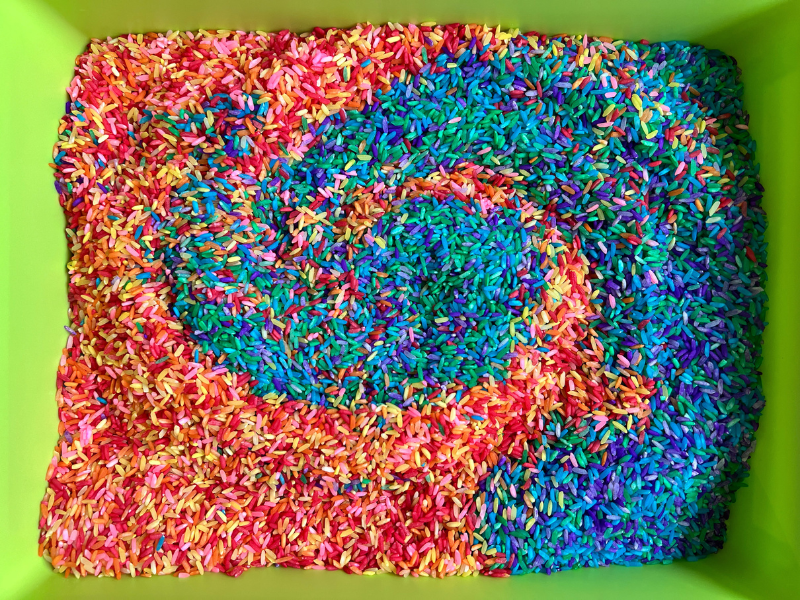
10. Rainbow Rice
Rice bins present a calming and quiet opportunity for kids to explore sensory play. Dyed rice is so easy to make. The recipe: Place 1-1.5 cups of rice into a Ziploc bag. Add a few drops of food coloring or liquid watercolors into the bag. For more vibrant colors, add a splash of vinegar. Seal and shake to incorporate color into the rice. Let dry and rice will keep indefinitely.
Add pom poms, scoops and vessels or small plastic animals or construction vehicles for kids to play with.

11. Colored Salt
Salt, whether dyed with food coloring or left plain, is a wonderfully tactile material and great for all kinds of sensory play and experiences. You can use it instead of sand to set up a DIY zen garden sand tray or as a filler for any kind of sensory play.
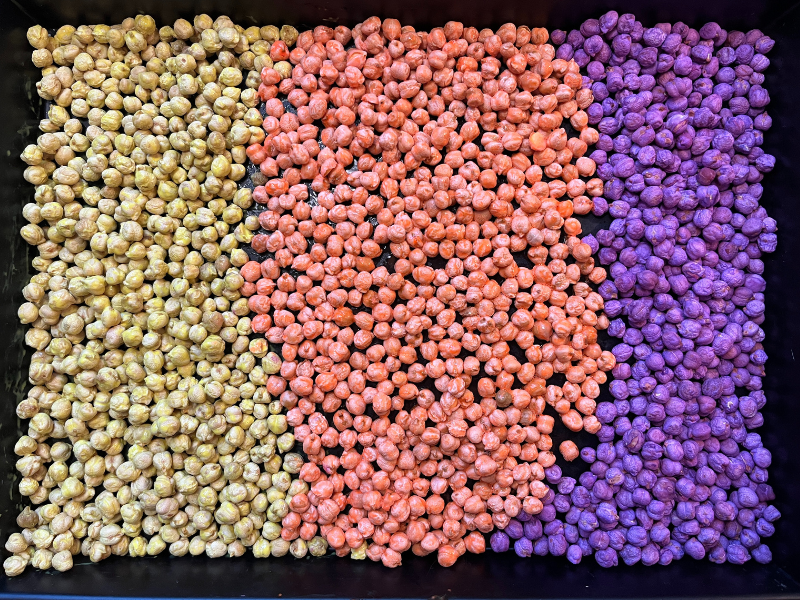
12. Dried Beans
Dried beans of any kind (chickpeas, lima beans, kidney beans, black beans, lentils, etc.) are a great filler for a sensory bin. They are fun to scoop, pour, run your hands through. If you are feeling extra fancy, you can dye light colored beans just like you would rice.
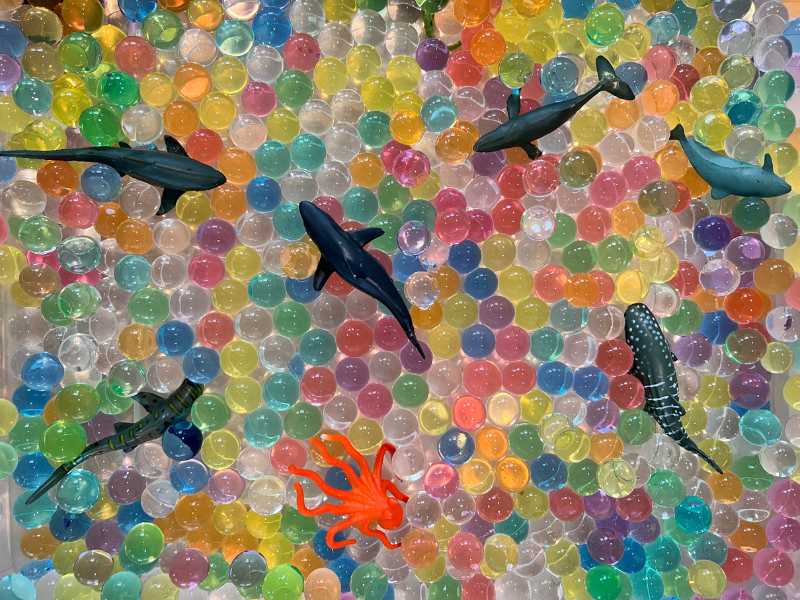
13. Water beads
Water beads have long been a favorite in our house as they are soothing to touch and can be a relaxing way to start or end a day. They are also fun to scoop, pour, and squish!
Important Safety Note: Despite all that we love about water beads, they do pose a serious health risk if swallowed so be sure to closely supervise your child while playing with water beads.
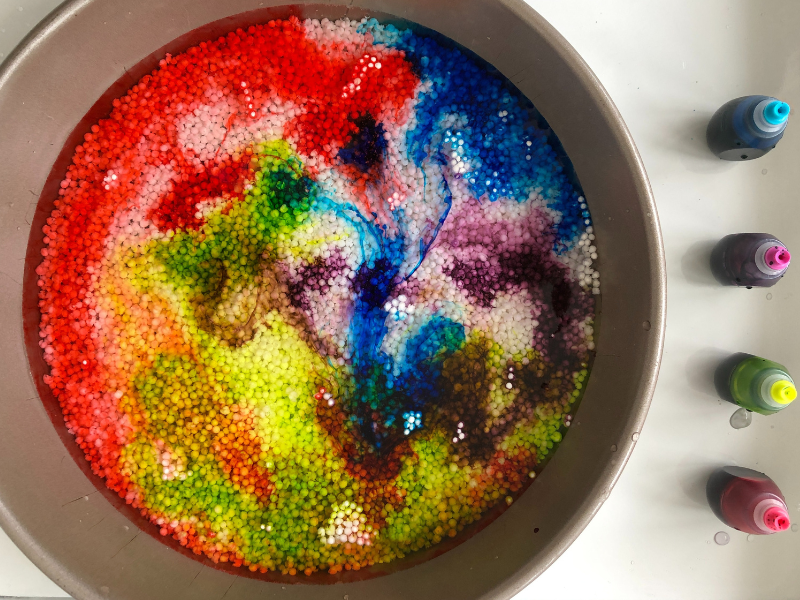
If your child puts things in his/her mouth, we recommend exploring edible replacements for water beads such as tapioca balls or pearls.
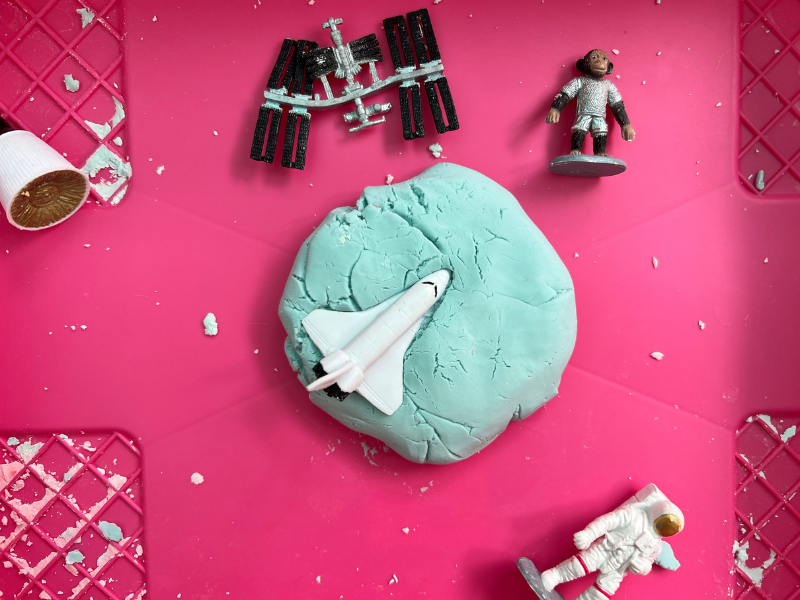
14. Cloud Clay
Not to be confused with cloud dough, this sensory material is more like fluffy playdough. Super light, easy to mold and smells delicious, kids love to build and play with cloud clay!
The recipe: mix 1 cup of cornstarch with 1/2 cup of hair conditioner and a couple drops of food coloring. Mix well until the clay comes together.
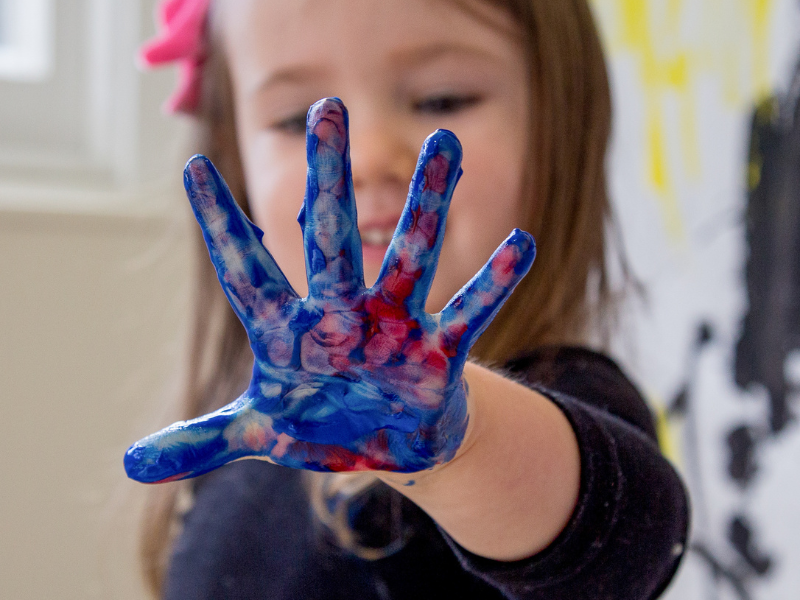
15. Finger Painting
Finger painting is one of the ultimate sensory art experiences for young children! Kids have permission to cover their hands with paint and slip, slide their fingers through gooey color.
This is the epitome of sensory art and, for young children, especially, sensory art is important for development and even helps them learn.
How about you? What are your family’s favorite sensory bin materials?
More Sensory Bin and Play Ideas
- The Artful Parent’s Guide to Sensory Play
- 7 Sensory Play Ideas for Toddlers
- How to Do a Baking Soda Experiment with Kids
- How to Make Oobleck
- How to Make Cloud Dough for Kids
- How to Make Aquafaba (A Taste-Safe Sensory Play Material for Kids)
Pin It for Later





